According to a survey, only 14% of couples sleep in separate beds every night. And while many of us might believe in the saying “couples who sleep apart grow apart” there are studies that show the opposite is actually true.
We at Bright Side believe that there are no wrong or right sleep arrangements, because to some, sleeping in different beds can be as pleasing as for others sharing a bed with their partner.
A poor night’s sleep can turn lovers into fighters.

According to research, sharing a bed with a partner that has restless sleep behavior can deprive you of 49 minutes of sleep each night. And, when one partner doesn’t get a proper night’s sleep because of the other, it will most likely result in a conflict between them the next day.
Actually, the study even confirmed that couples who tend to have a poor night’s sleep have more severe and more frequent fights than those who wake up well-rested. People who get a good night’s sleep, on the other hand, are more likely to be in a good mood, have lower stress levels, and be more patient.
Resenting your partner because you can’t get a good night’s sleep can be destructive to the relationship.

Snoring, fidgeting, and bed or blanket hogging are just a few of many reasons why some couples choose to sleep in different beds or even in different bedrooms. Lying awake listening to your partner snoring while you beat yourself up to fall asleep can lead to a build-up of anger, tension, and resentment toward your partner.
According to Jennifer Adams, author of Sleeping Apart Not Falling Apart, sleeping in a separate bedroom can even help a relationship thrive because both partners are not sleep deprived.
Each partner can tailor their sleeping conditions to their heart’s content.

Tina Cooper, a licensed social worker, sleeps in different bedrooms with her partner because of their opposite sleeping habits. “I’m a night owl, he’s an early bird. I need soothing sounds to fall asleep, and he likes silence. He likes a hard mattress, and I like soft and full of pillows. And because I don’t like the early day’s sunlight, my boyfriend gave me the master bedroom which gets less light and he has the second largest room that gets the sunrise he loves.”

How you spend the nighttime in your shared bedroom with your partner can also influence your daytime functioning, marital satisfaction, and psychological and physical health. And when 2 people with different bedtime preferences and nighttime schedules end up together, changing themselves just to please their partner’s needs might harm their relationship in the long run.
Sleeping in different bedrooms with your partner means that the 2 of you will have a place just for yourselves where you can relax after an exhausting day. This way, both of you can satisfy your needs without tiptoeing around and worrying about whether your partner might wake up because you want to watch the latest episode of your show before bed.
Even if you don’t remember waking up, disturbed sleep can have a negative impact on your overall health.

During the night, our brain cycles through the stages of sleep several times: light sleep, deep sleep, and REM (Rapid eye movement sleep). But when you interrupt the cycle by waking up during the night, it means that your brain spends more time in the light sleep stage and misses out on REM. And without sufficient REM your emotional well-being and cognitive performance suffer.
Interrupted sleep can also have short and long-term health consequences, like hypertension, weight-related issues, mental health problems, reduced quality of life, and other health-related issues.
People on Reddit share why they decided to sleep separately with their partner.

- “Because a good night’s sleep is more romantic than sharing a bed. I snore and toss and turn. He gives off literal village levels of heat in his sleep and I can’t stand the heat. I read, he can’t stand light. We keep different hours to an extent. A million reasons. We get along so much better this way.” — crankyweasels
- “My partner and I have completely separate bedrooms. We ’sleepover’ occasionally in each other’s rooms. However, we both sleep exponentially better apart. He’s a night owl and I’m an early bird. He wants only one sheet on him, I want 10 lbs of blankets. In addition, having a separate room allows me to decorate it however I want, have my own personal space, and keep it to the level of cleanliness I prefer. People look at us sideways when I mention the separate rooms thing, but it’s been a game-changer.” — eriasana
- “Different sleep cycles due to different work schedules. We are still madly in love and we both agreed to this because it’s the best for both of us.” — AFishInATank
- “Early in our relationship, 90% of our fights occurred in the bedroom. I like to sleep in a cold room with the fan on and white noise like a box fan. I also like to go to sleep with the TV on. She likes to sleep in a warm, still, cave in complete silence and darkness. We started sleeping in separate rooms and all of a sudden 90% of our fights stopped. Also, because we were getting real sleep, other fights turned more into heated discussions.” — ttc8420
What are your sleeping arrangements with your partner? Do you believe sleeping in different beds can help a relationship thrive?
I Found Out My Son Was Planning to Cheat on My Lovely Daughter-in-Law and Decided to Crash His Date with His Mistress

Maggie adores her daughter-in-law, Lara. So when she overhears her son, Dan, planning a night with his mistress, she refuses to stay silent. With Lara by her side, she follows him, straight to his betrayal. But exposing him just isn’t enough. Instead, Maggie is about to teach her son a lesson that will cost him everything.
I have two sons. My eldest? James. A loving husband, a wonderful father, hardworking, honest, and kind.
My other son? Dan.
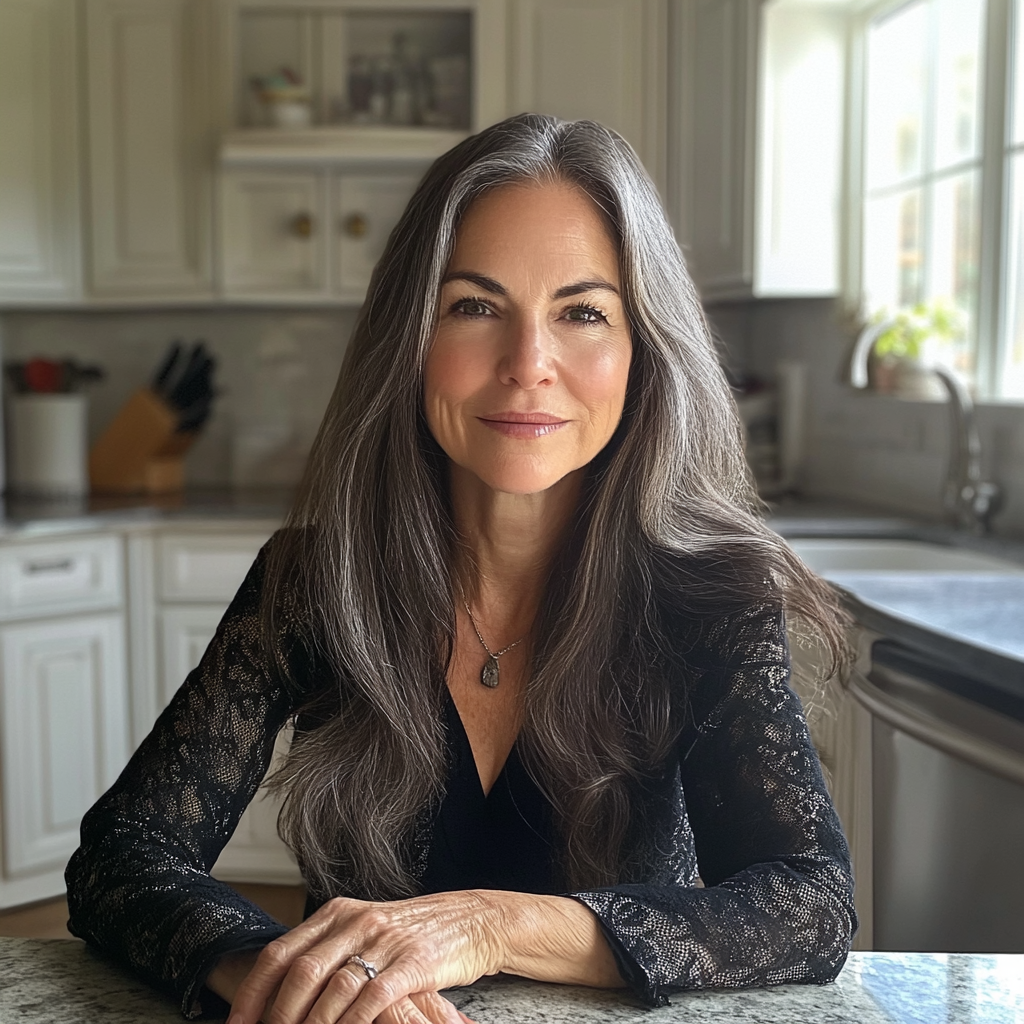
A woman sitting at a kitchen table | Source: Midjourney
Dan has always been… difficult. Selfish. Lazy. He was the type of kid who skated by on charm, always looking for the easiest way out. While James built a life, Dan bounced from one “passion” to another.
“It’s just the way I am, Mom,” he’d say. “Life is full of opportunities, and I want to try them out!”
The latest? A local fitness blogger, selling online courses on “proper nutrition and sports.” He barely had any followers, but he loved the attention.

A smiling man | Source: Midjourney
The comments, the likes, the little taste of fame.
We had long accepted that Dan would never settle down. So when he married Lara six months ago, we were shocked.
And Lara?
Oh, she was a dream. Sweet, thoughtful, kind, exactly the kind of woman I wished Dan could be worthy of. A wonderful wife and an even better daughter-in-law. A beautiful soul. And for a moment, I truly believed she could change him.

A young woman holding a puppy | Source: Midjourney
But Dan is Dan.
And a few nights ago, I found out exactly how much of a fool I had been.
It was late afternoon, and Dan was in my guest bedroom. He and Lara had a studio apartment, meaning that there was no room for his digital set-up. I was used to him coming and going, constantly making noise while filming.
I had just put the kettle on when I heard Dan’s voice, muffled but still audible, coming from the hallway.
“Yes, babe,” he chuckled. “I miss you too. But she’ll be at work tomorrow until late, so we can go to the restaurant and then move to the hotel. Yeah?”

A man talking on a phone in a hallway | Source: Midjourney
There was silence for a moment.
“Yes, the fancy restaurant on Paradise, Jen… I’ll text you the time.”
I gripped the container of teabags I was holding. My stomach dropped.
This foolish man was cheating.
On Lara.
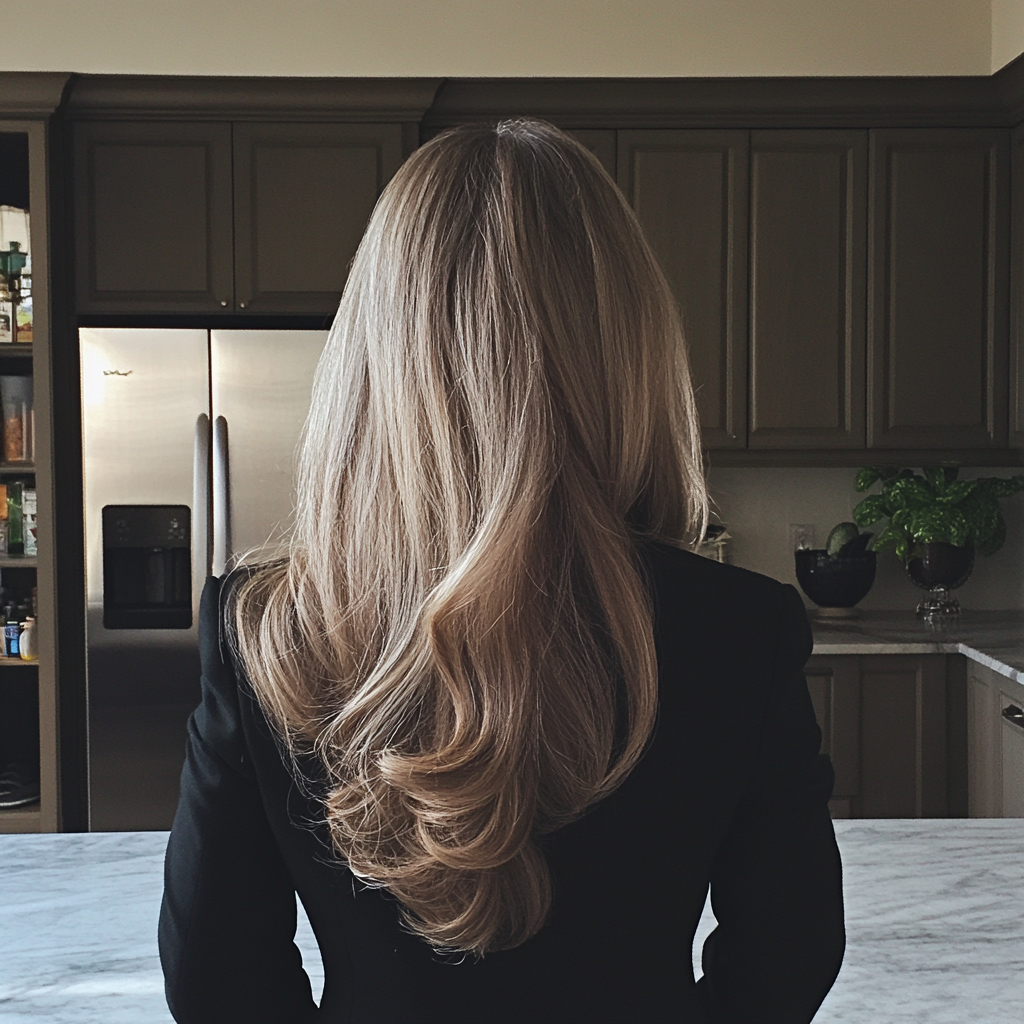
A woman standing in a kitchen | Source: Midjourney
The sweet girl who made him homemade lunches. Who laughed at his bad jokes. Who believed in him when the rest of us had given up any hope.
My hands shook as I turned off the stove. And in that moment, I made my decision.
I wasn’t going to let Lara be another woman blindsided by Dan’s selfishness. I was going to tell her everything. And we were going to teach Dan a lesson.

A woman making a sandwich | Source: Midjourney
The next afternoon, I picked Lara up from work. She greeted me with a warm smile, wiping her hands on her apron. She worked at one of the busiest bakeries in town.
“Maggie! What a surprise! What are you doing here?” she asked, beaming.
I took a deep breath.
“Lara, sweetheart, we need to talk.”

A young woman in a bakery | Source: Midjourney
We sat in my car, and I told her everything. Every single word I had overheard. Everything I had suspected.
Her face went pale.
“He… he said that?” her voice cracked.
“I love and respect you too much to hide it, Lara. You’re the daughter I never had,” I said, reaching for her hand.

A woman sitting in a car | Source: Midjourney
Tears welled in her eyes, and she clutched her apron tightly with one hand. But she didn’t break.
She swallowed hard and whispered,
“I want to see it with my own eyes. Do you know which restaurant?”
I nodded.
“Then let’s go, sweetheart. I heard which restaurant while he was on the phone.”

The exterior of a restaurant | Source: Midjourney
Dan had made dinner reservations at a fancy restaurant. One of those dimly lit places where the food is served in tiny portions, but the bill could make you cry.
Lara and I slipped inside, finding a perfect spot by the window.
And there he was.
My son, grinning like a fool, sitting across from a blonde woman in a tight red dress. Jen.

A woman sitting in a restaurant | Source: Midjourney
She leaned in, twirling a piece of hair around her finger, laughing at something he said.
I watched Lara dig her nails into her palm. I put my hand on her knee.
“Breathe, Lara. It’s not over yet.”
“Unbelievable,” she muttered.
We didn’t confront them. Not yet. We just watched. Watched him pour her wine. Watched him whisper in her ear. Watched him act like he wasn’t married to the best woman he would ever have.

An upset woman | Source: Midjourney
Someone a million times more than he deserved.
Then, hand in hand, they left the restaurant.
And we followed.
As they approached the hotel two roads away, we sat in the car and waited. As much as I knew we were doing the right thing, I didn’t want to break Lara’s heart. But here Dan was… already doing that.

The exterior of a hotel | Source: Midjourney
I pulled out my phone.
“He probably posted something about it on his socials, right? Dan’s that stupid. He can’t resist posting hints about his ‘private life.’”
“Let’s check his story,” Lara said.
And there it was.
A grainy black-and-white photo of a hotel hallway, stupidly captioned:
Privacy is everything.

A hotel hallway | Source: Midjourney
Lara zoomed in, and all the answers were there.
“Room 312,” she said.
Bingo.
Dan had given us everything we needed.
We got to the third floor just in time to see Dan and Jen disappear inside the room.

A woman walking down a hotel hallway | Source: Midjourney
“Are you sure you want to do this, Mom?” she asked, exhaling slowly.
I loved when she called me Mom. It made my heart melt. And I realized that I truly did love this girl.
“Oh, sweetheart, I’ve never been more sure of anything in my life, Lara,” I said. “He cannot get away with this.”
And with that, we stormed in.
Dan was on the bed, his shirt already halfway unbuttoned, Jen straddling his lap.

A man sitting on a hotel bed | Source: Midjourney
His face went ghost white when he realized what was happening.
“What the… Mom?!” he yelped, scrambling to push Jen off him.
Lara wasn’t crying. She wasn’t yelling. She simply picked up Dan’s phone from the table with his wallet and watch and held it up.
“Smile for the camera, Daniel,” she said.

A man’s phone and wallet on a table | Source: Midjourney
And just like that, she went live on socials.
Dan’s followers flooded in. His small but dedicated audience, the ones who actually believed in his “perfect athlete and family man” persona, were tuned in and watching.
“Hey, everyone!” Lara said into the camera, her voice steady although her hands shook. “You all think this man is a role model, right? A perfect husband? A loyal partner?”
She turned the camera to Dan.
Jen shrieked, covering her face. Dan lunged for the phone.

A woman holding a phone | Source: Midjourney
“Turn it off, dammit!” he screamed.
I stepped in front of him.
“Oh, honey, don’t you dare.”
Lara looked straight into the camera.
“Meet the real Dan. A liar. A cheater. A fraud. This is what he does while he tells you to be ‘better, stronger, healthier!’ While his wife is at work, supporting him. This is the man you follow. This is the man you trust.”

An angry man | Source: Midjourney
I picked up my phone and joined in on the live. I wanted to see the comment section explode.
Wait! He’s married?!
This is the guy I bought a nutrition plan from?
Unfollowing NOW! What a joke!
Is this him cheating? And his wife is exposing him? Haha!
Dan shouted. He yanked at his hair, rage and panic flooding his face.
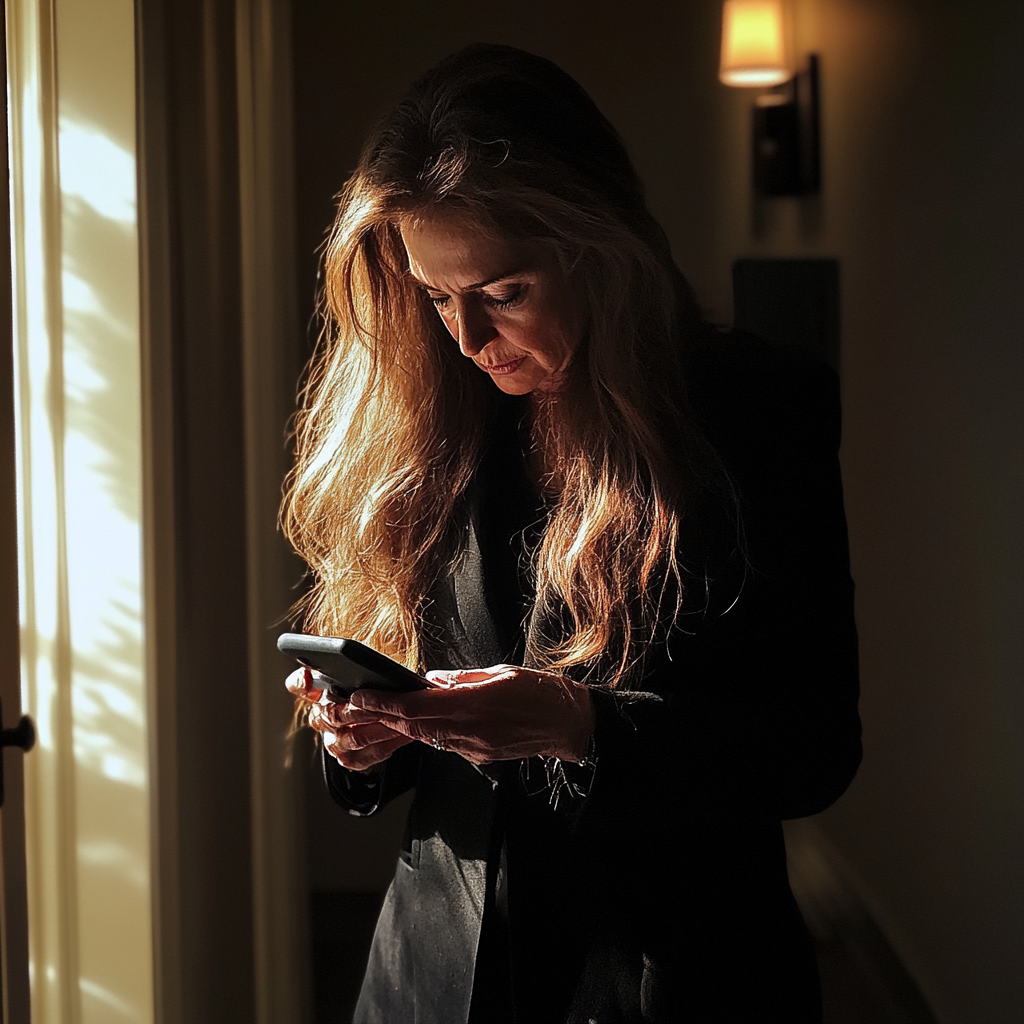
A woman using her phone | Source: Midjourney
But it was too late. The world had seen him. The real him.
The fallout was brutal.
Lara filed for divorce. Dan lost everything. Sponsors dropped him immediately. Followers vanished overnight. And as for Dan’s courses?
Refund requests flooded in.

An upset man | Source: Midjourney
James, my eldest, washed his hands of him.
“No way. I’m not bailing you out this time, Dan. And why would you do that to Lara? You make me sick. I don’t want my kids to know you.”
And me?
I did what a mother had to do.
I let him fall.
Because if you raise a son who has no respect for his wife, then as a mother, you have failed.
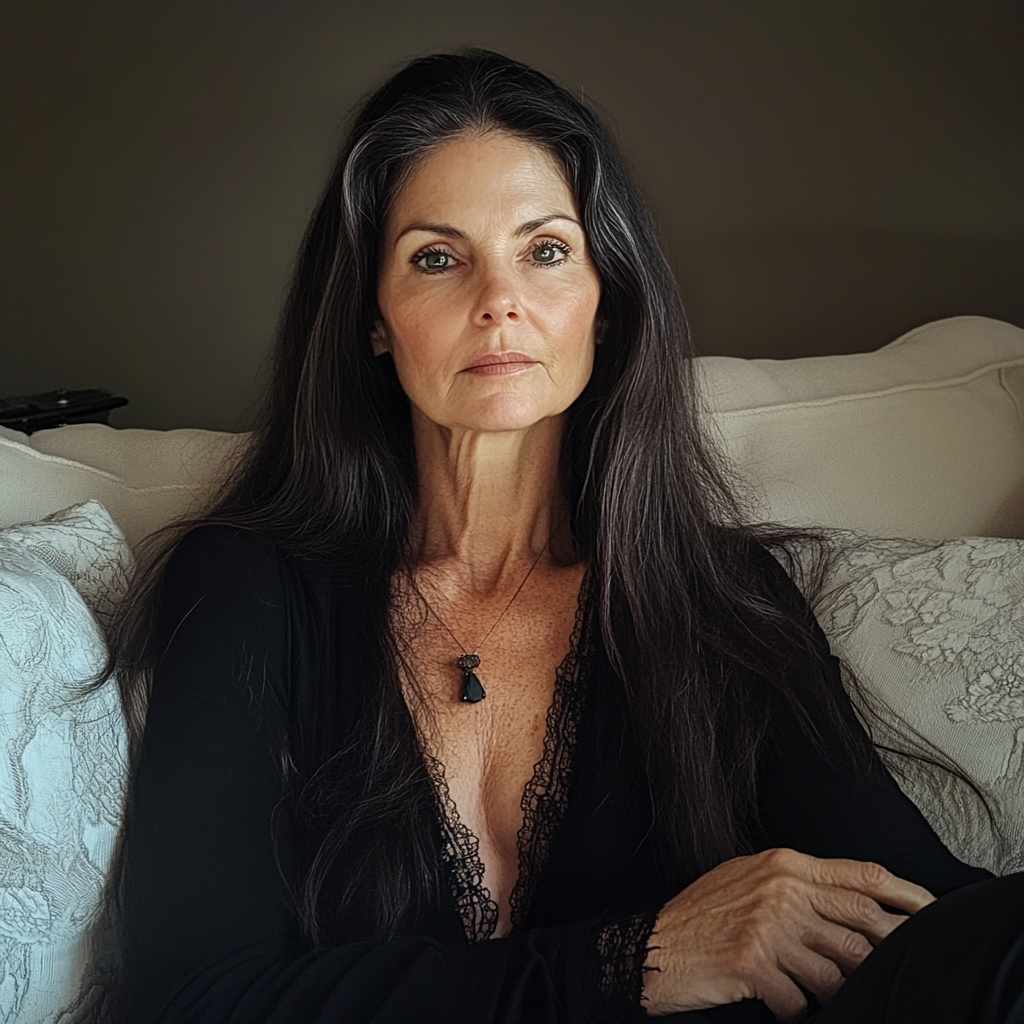
A woman sitting on a couch | Source: Midjourney
I may have lost a son that night, but I gained a daughter.
And I’d choose Lara every time.
Lara sat at the kitchen table, fingers tracing the rim of her mug. The warmth of the tea did little to thaw the heaviness in her chest. It was clear to see.
“I still can’t believe you stood by me like this,” she whispered, her voice thick with emotion. “You didn’t have to. You could’ve just… ignored it. Pretended that you didn’t hear any of it.”

A woman sitting at a table | Source: Midjourney
I swallowed the lump in my throat.
“Sweetheart, how could I?” I said softly. “I love you. You’re my daughter, even if not by blood.”
Lara looked up, her eyes glassy.
“But it must have hurt. To see your own son exposed like that.”
I clenched my hands around my mug.
“It broke me, Lara,” I admitted.

A woman sitting at a table | Source: Midjourney
“Because of what he did to me?” she asked, her gaze fixed on the scone in front of her.
“Because of what he turned into,” I said. “Because I raised a man who could humiliate a woman like you. And because I couldn’t stop it.”
Lara let out a watery chuckle. “And instead, you helped me destroy him.”
I smirked. “Damn right I did.”
She reached across the table, squeezing my hand.

A scone with jam and cream | Source: Midjourney
“I lost a husband,” she whispered, “but I gained a mother.”
Tears stung my eyes.
“And I’ll always choose you, sweetheart.”
A week later, Dan had moved out of his apartment and into Jen’s home, leaving Lara to find herself in her own space. But this evening, he had come home for one final family meeting.
Dan stood in my living room, arms crossed, looking every bit the sulking child he had always been. James sat beside me, his jaw clenched so tight I thought he might break his teeth.
“So, what now?” Dan scoffed. “You guys are just going to cut me out completely?”
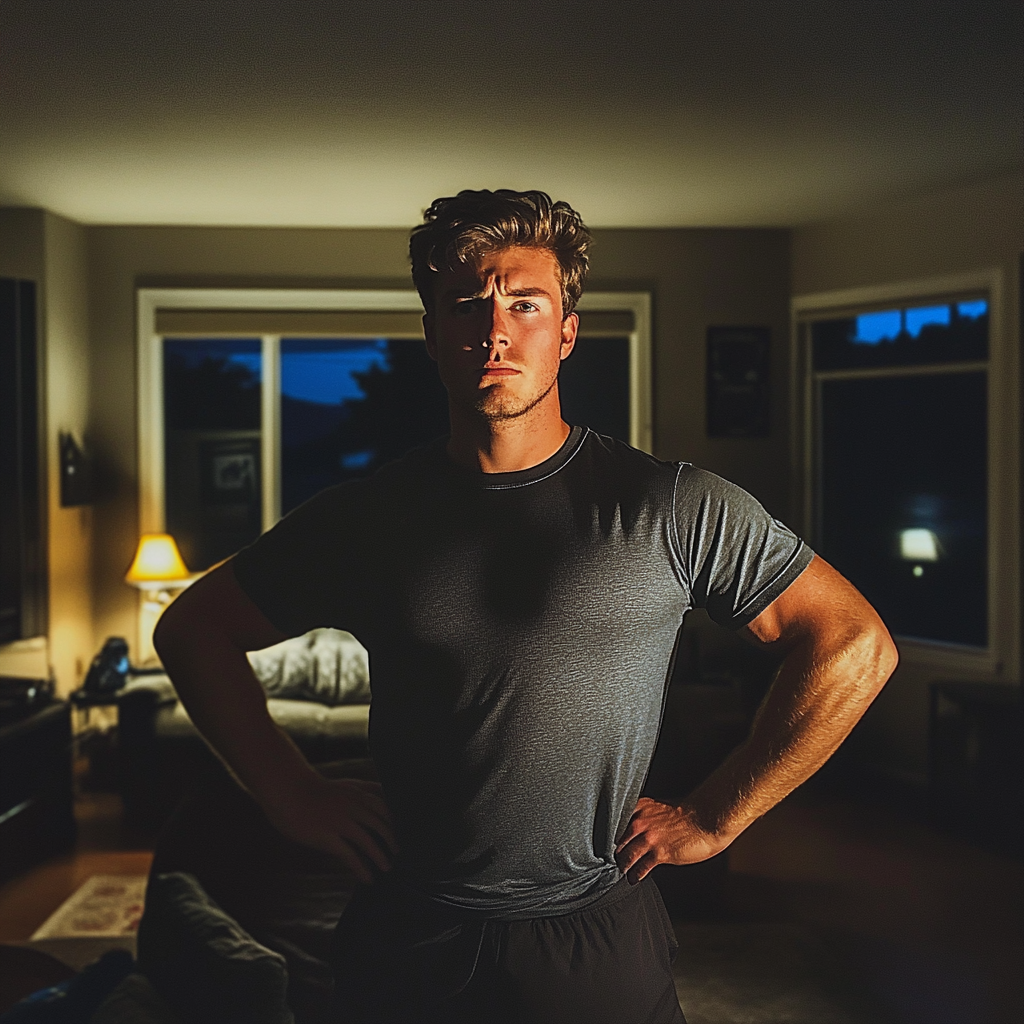
An angry man | Source: Midjourney
James exhaled sharply.
“You did that yourself, Dan.”
Dan rolled his eyes. “Oh, come on. Lara’s fine. She got her revenge. What more do you want?”
I stared at him, disgust curling in my stomach.
“Fine?” My voice was low, dangerous. “You humiliated her. You destroyed your own marriage. You ruined everything, and for what? A cheap thrill?”

A woman sitting on a couch | Source: Midjourney
Dan scoffed. “It wasn’t like that…”
“Shut up, Dan.” James’s voice was sharp, cutting through his excuses. “For once in your life, shut up and take responsibility.”
Dan had the audacity to laugh.
“Oh, please. You’ve always hated me. This is just an excuse to push me out.”
I stood up, my hands trembling.
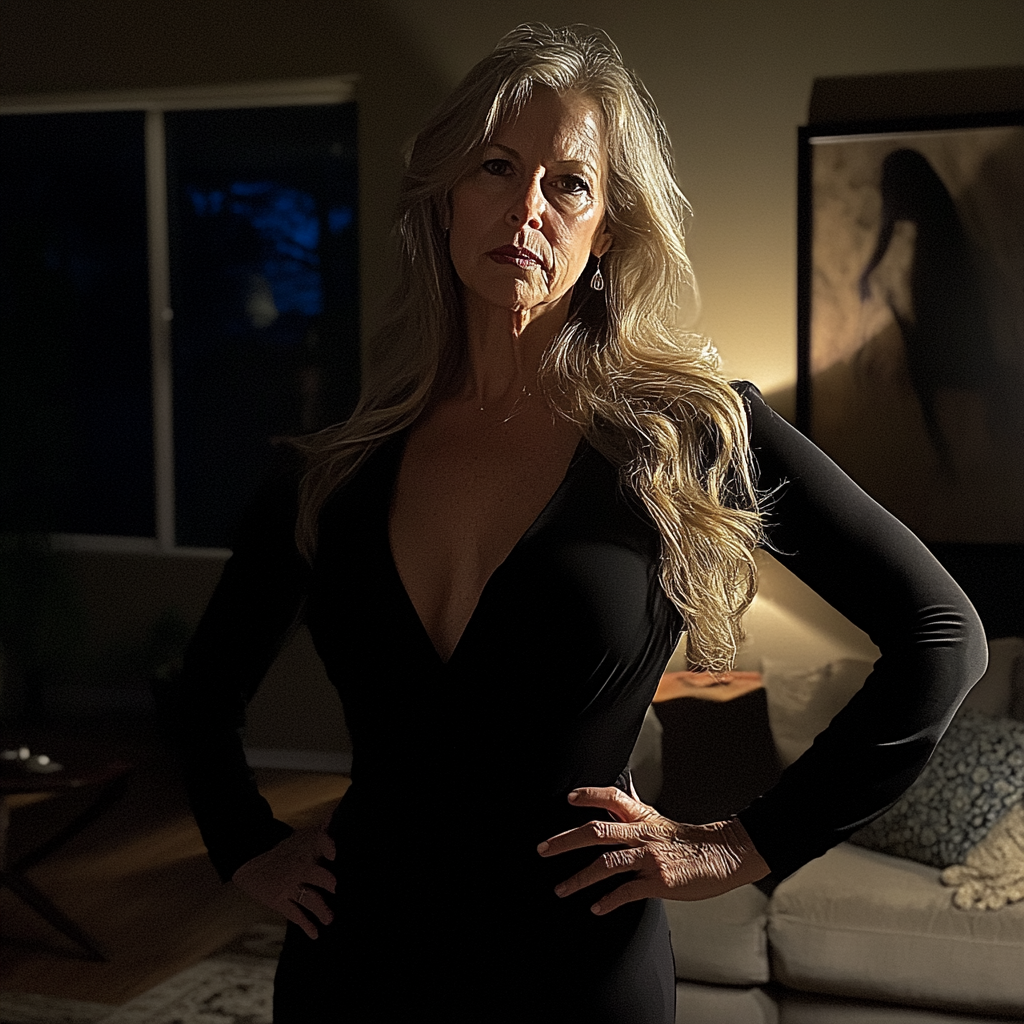
A woman standing in a living room | Source: Midjourney
“Do you think this is easy for me?” I whispered. “Do you think I wanted to be ashamed of my own son?”
Dan’s smirk faltered.
“I have always loved you, Dan. Even when you failed. Even when you disappointed us.” I swallowed hard. “But this? I can’t stand by you after this.”
James stood beside me.
“Neither can I.”

A man standing in a living room | Source: Midjourney
Dan looked between us, panic flickering in his eyes.
“You’re choosing her over me?” he asked, voice cracking.
I nodded.
“Dan. I’m choosing what’s right over you.”
And with that, I turned away. James followed. As for Dan? He was finally alone.
Some betrayals deserve to be exposed. Some men deserve to lose everything. And sometimes? Your real family isn’t the one you’re born into. It’s the one you choose.
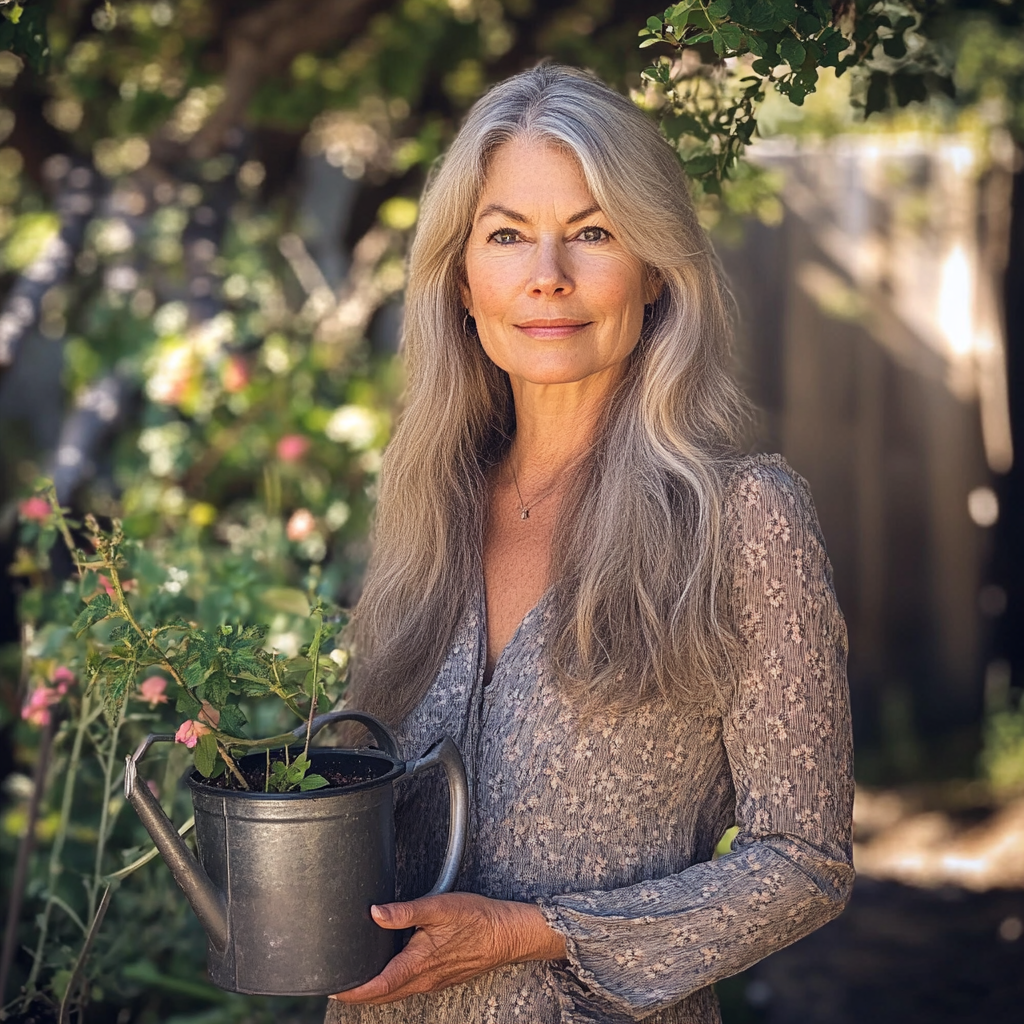
A woman holding a plant | Source: Midjourney
If you enjoyed this story, here’s another one for you |
When Emily’s sister-in-law plans an elaborate potluck, she feels nothing but dread at the things that Jessica insists she brings. Trying to keep her budget in mind, Emily makes a casserole, but Jessica dismisses it, and her. It’s only when karma steps in, that Jessica has no choice but to eat humble pie.
This work is inspired by real events and people, but it has been fictionalized for creative purposes. Names, characters, and details have been changed to protect privacy and enhance the narrative. Any resemblance to actual persons, living or dead, or actual events is purely coincidental and not intended by the author.
The author and publisher make no claims to the accuracy of events or the portrayal of characters and are not liable for any misinterpretation. This story is provided “as is,” and any opinions expressed are those of the characters and do not reflect the views of the author or publisher.



Leave a Reply